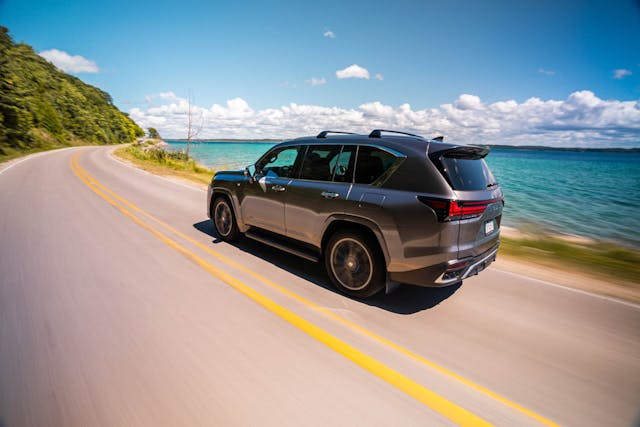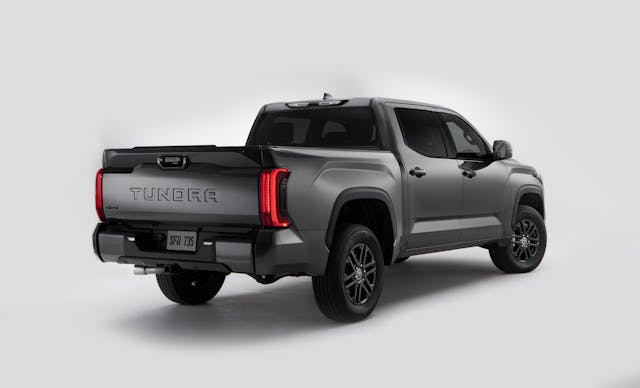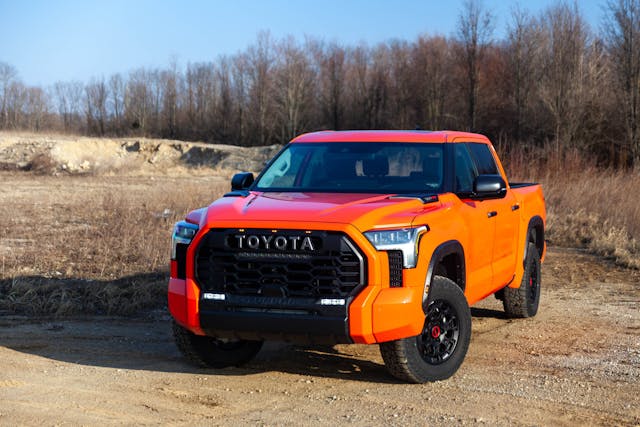Over 100K Toyota Tundras and Lexus LXs Need New Engines
If you’re the owner of a 2022–23 model-year Toyota Tundra or Lexus LX 600, keep an eye on your mailbox. According to Automotive News, Toyota Motor North America will replace the twin-turbo V-6s in more than 100,000 examples of these two models, after discovering a manufacturing defect in those engines that could cause them to lose power.

The engines in question may run rough or lose power altogether because of machining debris that was not properly cleared during the manufacturing process.
Toyota announced a recall on the two models back in May, noting in a statement that the leftover debris could “lead to potential engine knocking, engine rough running, engine no start and/or a loss of motive power.”

Affected owners will be notified this month. Toyota and Lexus dealers will replace the defective engines with new ones at no cost to the customer. The repair is expected to take between 13 and 21 hours of shop time, according to Toyota.
The third-generation Tundra is off to a bit of a rocky start. While the pickup feels miles more advanced than the one that it replaced, which had been on sale since 2006, the old truck was a poster child for anvil-like reliability. The engine replacement here is certainly a bit of a black eye on the new model. That said, we commend Toyota for eating what is surely a substantial amount of money to make things right for customers.



When will turbo delete kits become the norm? Drive around with 300hp for the life of the car, throw the turbos back on, let the second buyer deal with the high pressure problems.
Just proof Toyota is not different than the others. Their quality was based on building nearly the same engines and vehicles for 20 years. Now they make more changes and they feel the issues.
This will be expensive and time consuming for the customers as it may take a year or more to get an engine. Supplies will be stretched.
Turbo delete is not really an option in an engine like this as it will not have much power and would need a lot of retuning to make it just a bad engine.
The Turbo is not the only thing here the junk in the engine is killing the turbos and engine.
I’ve read a few interesting things about wine rankings over the years where if the taste testers know the wines they are tasting, the premium wines always win. If you have a blind taste test, lesser wines win and the premium ones generally don’t. This experiment also apparently works if you substitute a cheaper wine for a premium wine.
I have always suspected that much of the same exists for Toyota and Honda, where a lot of the car magazine folks back in the day convinced themselves that these are the best cars in the world, then they convinced their readers, and this notion that they are the best cars in the world have been perpetuating ever since. I know they make some good cars, I just don’t think they have been that good for that long
My 2006 Toyota van with 283,000 miles would disagree with you. Still drive it daily and has its original AC and transmission. Still runs smooth and gets the same mileage its gotten from new. It doesn’t even use much oil. I have had to fix a few things over the years but the list is not that bad. A radiator and some front end bits and I replaced the factory shocks a year or so ago. But still runs quite and well.
I noticed a new Tundra in a neighbor’s open garage the other day. I’m afraid to stop and ask…